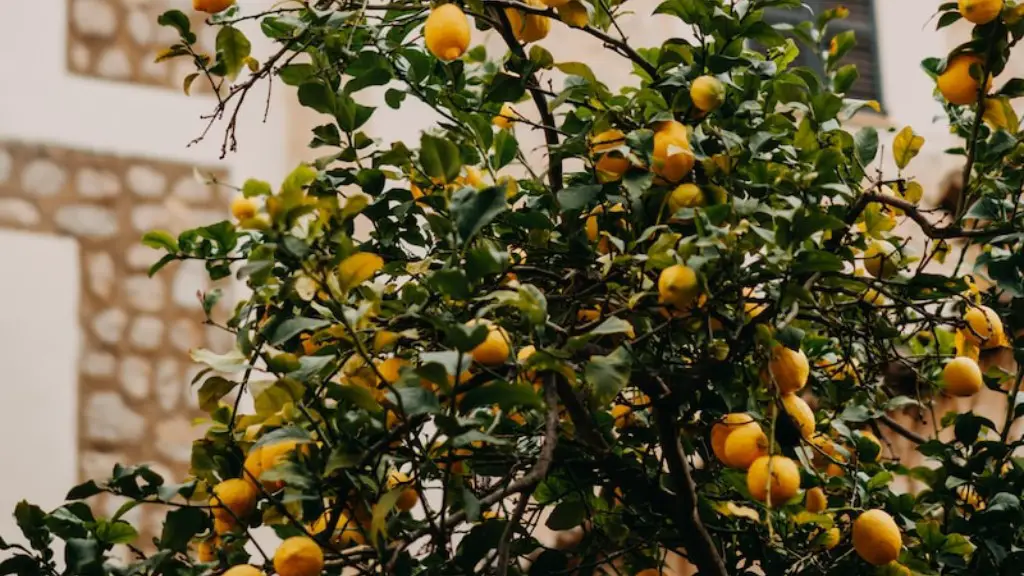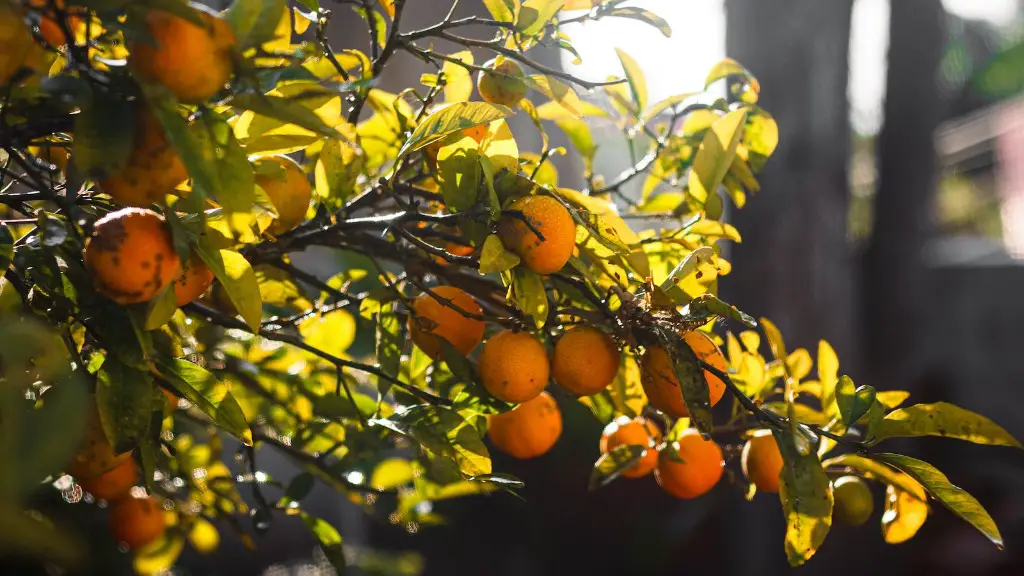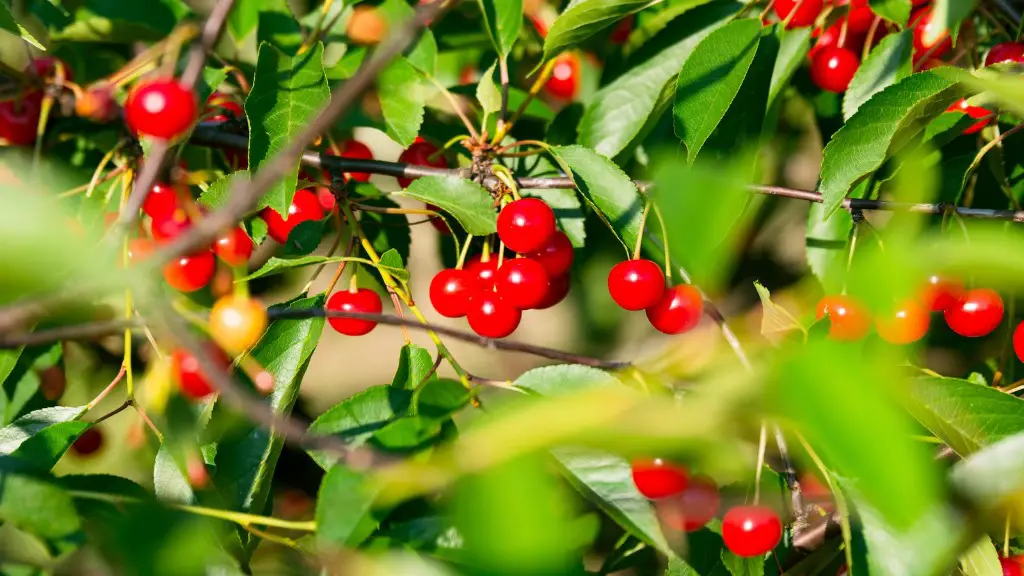Purchasing a lemon tree for your garden or home requires careful consideration. Firstly, there are many varieties and heights to choose from, so it’s important to select the best option for you. Secondly, decide if you are looking for a dwarf or full-size lemon tree. Thirdly, ensure your outdoor space has enough sun and if indoors, enough light. Fourth, pick a tree from a reputable nursery or garden centre. Ensuring the tree is healthy and come with a warranty. Fifth, select a pot that meets the size and specifications of the tree. Lastly, research organic soil and fertilizer suitable for your new lemon tree.
Shop Locally
Shopping locally can be an effective way to purchase a lemon tree. Not only do you support your local economy, but you can typically view the lemon tree in person. This way, you can make sure it’s healthy before making your purchase. Additionally, when shopping locally, it is possible to ask questions about the tree and get answers directly from an experienced nursery worker.
In addition, if you’re looking for a specific variety, it’s best to shop near where you live. In the UK, lemon trees are native to Mediterranean climates, such as Spain and Italy. So you may find it easier to identify the variety you’re after if you’re in or close to a Mediterranean climate.
Online Plant Shopping
Online plant shopping has become increasingly popular in recent years. Shopping online provides you with a wider selection, making it easier to find what you’re after. In addition, many online plants will provide a warranty, ensuring you get a healthy, safe plant. Before ordering, however, be sure to research the website and read reviews, to make sure you’re purchasing from a reputable business.
Another advantage of buying online is that you can narrow your search according to climate, soil type and tree size. This makes it easier to find a type of plant suitable for your environment. Plus, if you’re unsure about the lemon trees available, it’s worth doing some research to learn more about what’s likely to fit your needs.
Check The Reviews
When selecting the right lemon tree for you, it’s important to check reviews. Check out sites like Yelp or Amazon to see what others have had to say about their experience with the tree. Reviews can help you determine if it’s a good plant for your location and climate, or if it’s an easier or harder tree to care for.
Additionally, reviews can quickly narrow down a list of potential lemon trees. As an example, if the reviews aren’t too promising for one lemon tree, you can easily switch to another. All in all, reviews are a valuable resource when deciding which lemon tree to purchase.
Do Your Research
Before purchasing a lemon tree, it’s a good idea to do your research. It’s important to learn more about the different types of lemon trees, their size and which climate and soil they require to grow effectively. Researching ahead of time helps you to choose the right lemon tree for you.
The internet is a great source of information when it comes to learning about lemon trees. Look out for educational videos, such as those provided by James Wong, who frequently covers gardening on YouTube. There are also several helpful websites, such as the Costa Farms website, which covers everything from citrus tree care to various types of lemon tree.
Speak To A Professional
Speak to a professional in your local area, such as a garden centre worker or nursery worker, to gain more information. Professionals will be able to give you advice according to your individual situation, such as recommending the best soil for your lemon tree and whether or not you need organic fertilizer.
In addition, experts can provide extra information such as watering requirements, how to pot the tree and how to ensure your tree is well-protected from pests and diseases. Ultimately, speaking to a professional can be a great way to ensure your lemon tree thrives for years to come.
Prepare For Planting
Once you’ve chosen and purchased a med lemon tree, it’s time to prepare for planting. Lemon trees should generally be planted in warm, dry climates. Before planting, check your climate and soil type to ensure they are suitable conditions for a lemon tree. If you live in a cooler climate, consider planting a dwarf lemon tree to reduce the risk of frost damage.
It’s also important to pick a spot in sun, as lemon trees prefer at least 6-8 hours of direct sunlight a day. Lastly, prepare the soil ahead of time by ensuring it’s adequately prepared and well drained.
Water and Fertilize Regularly
For your lemon tree to be happy and produce quality fruit, water and fertilize regularly. As a general rule, citrus trees need to be watered at least once a week during the growing months, and you can reduce this to once every one to two weeks during the winter. Make sure to avoid overwatering, however, as this can cause root rot.
When fertilizing, use an organic fertilizer designed for citrus trees, and fertilize in the spring and summer months when the tree is actively growing. After fertilizing, water-in the fertilizer and make sure to avoid getting any on the foliage of the tree.
Pest and Disease Control
It’s important to regularly monitor your lemon tree for any signs of pests or diseases. If you spot any, take action immediately to remove or treat them. For example, spider mites and aphids can both cause harm to your lemon tree, so make sure to keep an eye out for these common culprits.
In addition, disease control is important if your tree is suffering from citrus blight, citrus canker or citrus greening. All of these diseases can impact the health of your lemon tree, so if you’ve spotted any, it’s worth seeking advice from a professional.


